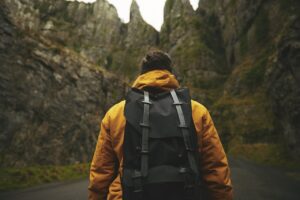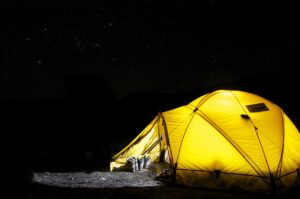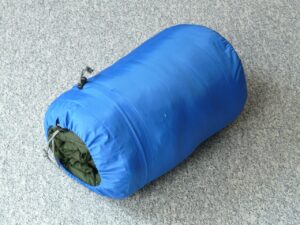Backpacking Light: A Journey of Simplicity and Adventure
Backpacking light is not only a technique, but also a mindset-one that brings you to the very basics of your backpacking and finds pleasure in carrying less. Whether going for a weekend hike or a multi-day trek, carrying less weight generally allows you to move more quickly, see more, and tax your body less. Here are some tips to maximize this life-changing paradigm of hiking.
The Philosophy of Going Light
Backpacking light is primarily efficient without sacrificing comfort or safety. It is not about deprivation but a constant balancing act between necessity and pleasure. Every ounce you carry should justify its presence, and every extra item in your pack must earn its stay.
With this process, you have multiple benefits:
Physical Comfort: The non-load of the backpack allows joints, muscles, and beating bones to scream less as you hike for longer with almost no grief.
Greater Mobility: With lighter luggage, you can nimble along rugged terrain and adjust your course quicker and easier as conditions change.
Mental Clarity: A streamlined pack fosters a clearer mind, letting you focus on the journey, not the baggage.
Essential Strategies for Packing Light
Plan with PrecisionLight backpacking demands a great deal of forethought. Research your trail, know the weather report, and customize your gear list accordingly. A dry season might allow you to take less rain gear; if it is a well-marked trail, an easy paper map might suffice instead of a GPS and a guidebook. Planning keeps temptation for “what-ifs” from influencing overpacking.
Invest in Low-Weight GearModern ultralight gear is a revolutionary landmark. Rapidly advancing materials have cut weight with no sacrifice to performance:
 |  |  |
- Backpacks: A pack below 2.5 pounds with the carrying capacity of 30–50 litres should be chosen. Smaller packs defend against overpacking. Check out ultralight backpacks here.
- Shelters: Ultralight tents, tarps, or hammocks offer the best protection at close to no weight. Many options come in under two pounds. Explore lightweight shelters.
- Sleeping Gear: Select a down sleeping bag or quilt fit for the temperatures of your hike. Pair it with an inflatable sleeping pad for warmth and comfort.
Master Multi-functional itemsMulti-functional equipment reduces weight and saves space; consider these examples:
- A bandana can be used as a wash cloth, sunshade, or for a first-aid sling. Discover versatile bandanas.
- Trekking poles serve as tent poles, so there’s no need for others as well. Shop lightweight trekking poles.
- A pot lid can also double as a plate.
Layer WiselyRather than thick clothing worn as a single layer, layering should be used to suit any kind of condition:
- Layer 1: Base-layer fabrics for high moisture-wicking properties, such as merino wool or synthetic blends, keep your skin dry.
- Layer 2: Lightweight fleece or insulated jackets give warmth.
- Layer 3: A rain and wind-proof, breathable shell put on over insulated clothing, which provides additional protection.
Trim the Fat.“Shakedown” your gear. Spread all equipment to be taken out and weigh it as follows:
- Is it necessary for your survival and comfort?
- Can you get an alternative that isn’t as heavy?
- Is it possible to share with your troop such things as stoves or tents?
Food and water:
Food: Plan on carrying dehydrated meals, lightweight snacks, and calorie-dense food. Calculate portions so you don’t have to carry extra. Check out dehydrated meals.
Water: Carry a compact filter or purification tablets, and take only what is needed to get between water sources. Browse water filtration options.
Safety First
Lightweight backpacking should never compromise safety. Always carry the Ten Essentials:
| Navigation Headlamp Sun protection First-aid supplies Knife, Fire starter Emergency refuge Extra food Water Clothing Shop the Ten Essentials |
The Benefits of an Empty Backpack.
By adopting practices that are friendlier to your pack, you will surely hold a different view of outdoor recreation. Freed from the burden of heavy bags, you will be able to:
Cover More Ground: You will be able to go farther or tackle tougher hikes.
Take It All In: Less physical strain means more energy to enjoy your surroundings.
Assert Your Power: Packing lightly gives a wonderful sense of accomplishment. It fosters resourcefulness and a deeper connection to the world of nature.
Conclusion
Lightweight backpacking is a journey of its own that changes with one’s experience and challenges the way you view your relationship with materialism depriving you of your freedom. Pack smarter by selecting fewer tools or multi-use items for your gear, and practice a conscious approach to packing, and your hikes will become simple adventures. So pack light, walk softly, and let the trail take you through unforgettable memories.
Recommended Gear
- Ultralight Backpacks: Explore options
- Lightweight Shelters: Check out shelters
- Trekking Poles: Find trekking poles
- The Ten Essentials: Shop the Ten Essentials.
